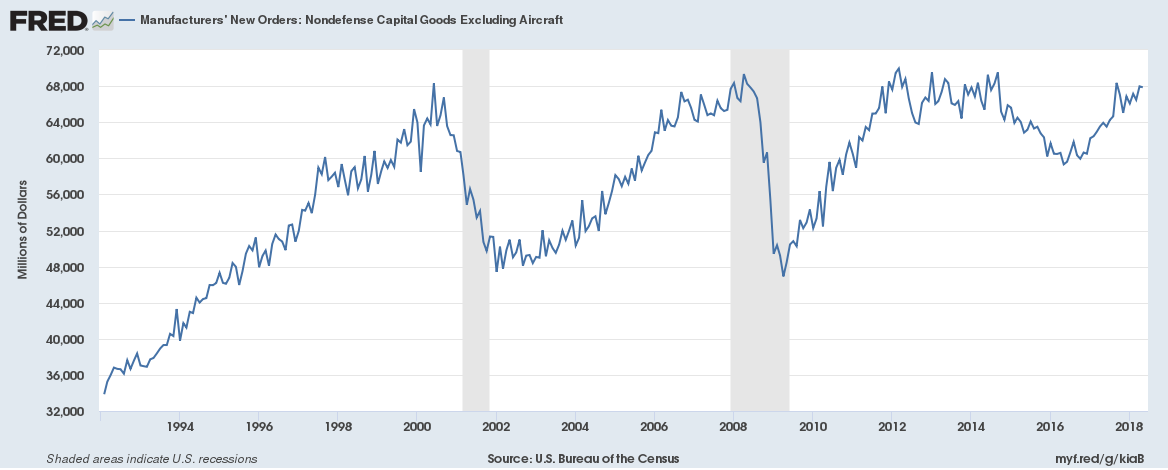January 29, 2017
The headline warned readers that the Republican’s proposal for reforming the corporate income tax is coming for your toys, literally:
“Trump-era tax reform could come for your toys.”
Okay, we get it. The Washington Post doesn’t like the tax reform and is not content to keep its views to the opinion pages. (This article ran at the top of the Sunday business section.)
The basic story is almost Trumpian in its unreality. The tax reform includes a border adjustment tax on imports. This is similar (not identical) to what countries with value-added taxes do, which is almost every other wealthy country. The conventional wisdom among economists is that currencies adjust so that the net effect on the price of imports, including toys, is minimal.
While this piece notes this argument, it implies that consumers and retailers have great cause for concern over the tax. In this respect, it is worth pointing out that currencies fluctuate by large amounts all the time, in ways that are likely to have far more impact on the price of imported toys than this tax. The figure below shows the inflation-adjusted value of the dollar measured against the currencies of our major trading partners.

Note that the dollar fell by more than 25 percent against the currencies of our major trading partners in the years between its peak in 2002 and its trough in 2008. This would have sent the price of imported toys up by far more than the new tax possibly could, even though it never prompted an article in the Post warning readers that a falling dollar was coming for their toys.
As a practical matter, a currency adjustment will take time and may not be complete, but in the technical language of economists, so what? If the price of imported toys rises by 3–4 percent as a result of the tax, what would be the big deal. This change is swamped by movements in currency values that never even get mentioned. (I discuss the tax reform proposal, which could get rid of the tax avoidance industry, at more length here.)
It is also worth pointing out that incredible hypocrisy and/or ignorance underlying these discussions. If the United States is to get back to something closer to balanced trade, as opposed to having a trade deficit of more than $500 billion (around 2.7 percent of GDP), it is likely to require a lower valued dollar and higher import prices.
We can count on news outlets like the Post pointing out that the higher import prices mean that lower income people will have to pay more for imported goods at Walmart. This is true, but they are also more likely to be able to get relatively good paying jobs in manufacturing. Also, the availability of these jobs is likely to put upward pressure on the wages of less-educated workers more generally. The net effect for these people is almost certain to be positive.
If this is hard to understand, suppose we remove the protectionist barriers that allow our doctors to earn twice as much as doctors in other wealthy countries. This would likely cause the pay of our doctors to be more in line with pay in Europe and Canada (@ $150,000 a year, as opposed to an average of more than $250,000 a year now). The doctors would all benefit because they and their families would now pay less for their health care, or at least this is how it would be covered using the Washington Post standard.







Comments